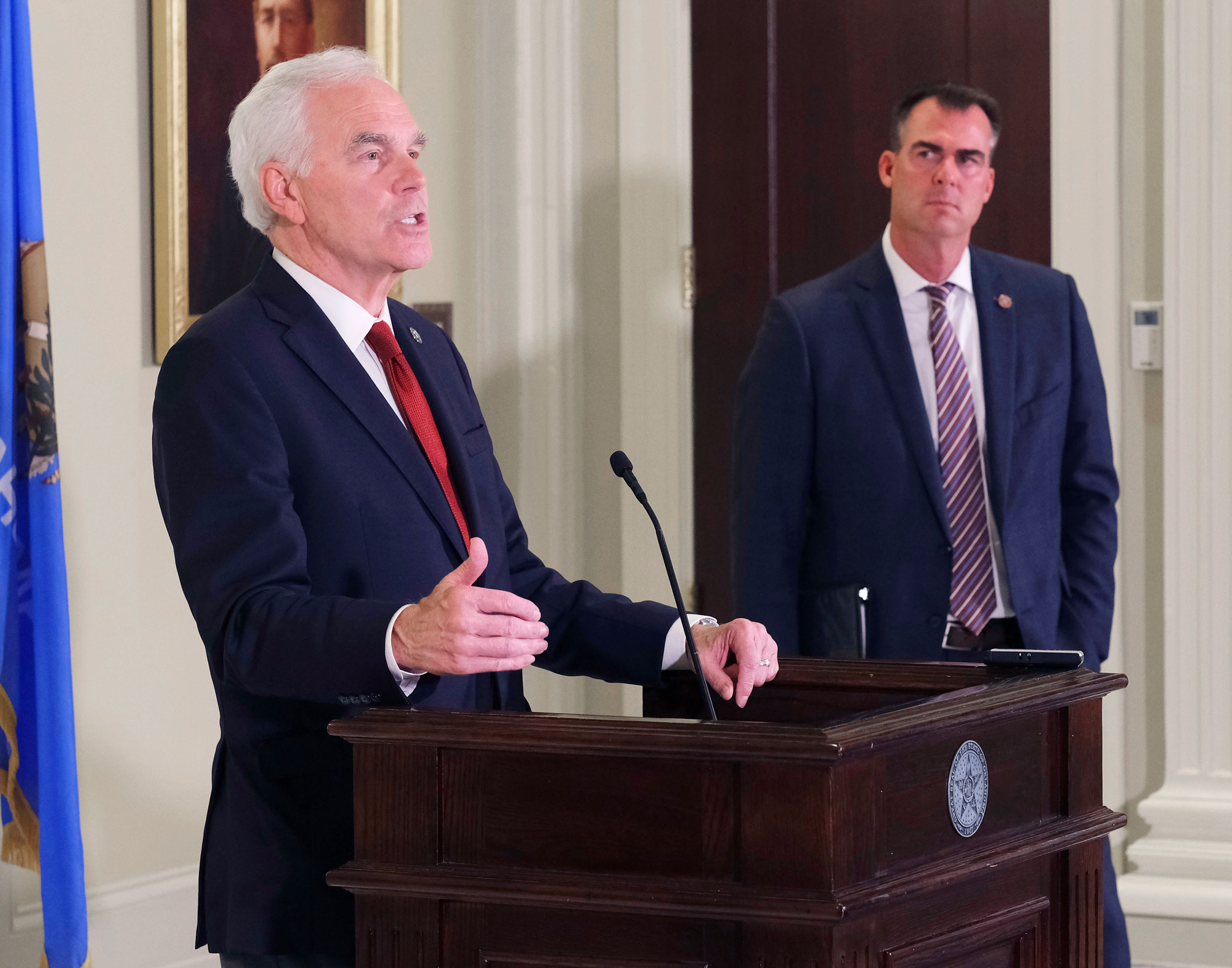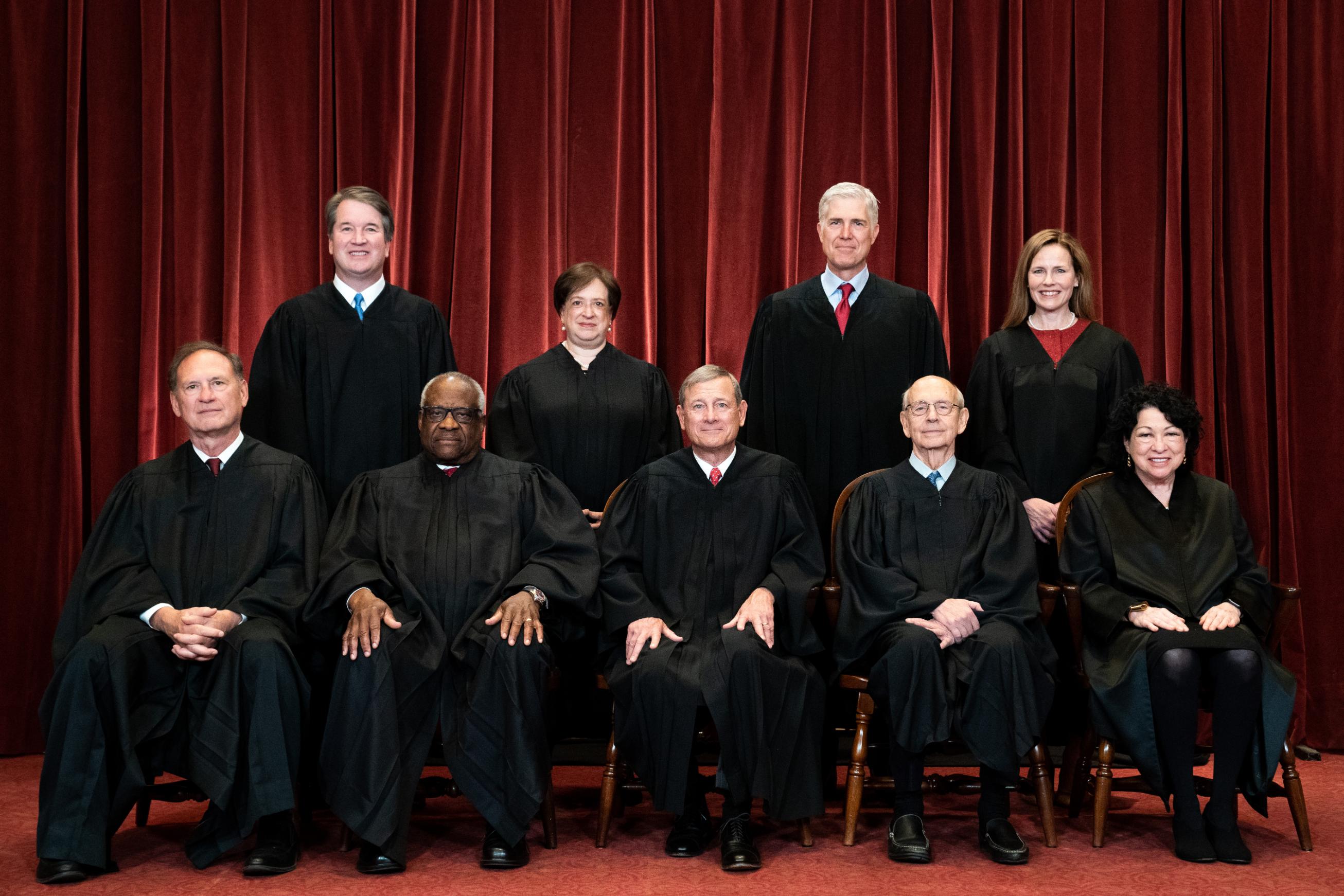“It’s about all of us”: Michigan governor fighting to block restrictive abortion law from going into effect
Michigan Gov. Gretchen Whitmer said she is trying to stop a nearly-century-old law that restricts abortions from going into effect, now that the US Supreme Court has overturned Roe v. Wade.
If the proposed law does go into effect, it would make Michigan one of the most restrictive states on abortion access.
The 1931 law that’s still included in Michigan’s penal code states: “Any person who shall wilfully (sic) administer to any pregnant woman any medicine, drug, substance or thing whatever, or shall employ any instrument or other means whatever, with intent thereby to procure the miscarriage of any such woman” … is guilty of a felony.
It has an exception to “preserve the life” of the woman, but it does not exclude for rape or incest. The law also threatens abortion providers with prison time, according to the American Civil Liberties Union of Michigan.
In response, Whitmer filed a lawsuit to try to block it from going into effect, before Roe was overturned. Now, she said she is hoping the court takes action soon.
“I filed this lawsuit a couple of months ago. People thought that it was too early, or maybe it wasn’t going to be necessary, obviously, it was both timely and absolutely necessary,” Whitmer told CNN on Friday.
The lawsuit argues that under the Michigan constitution, “women have due process and equal protection right to privacy and bodily autonomy and I’m hoping that our judges move swiftly to recognize that right here,” she said.
Whitmer said restricting abortion rights in Michigan would not just hurt those who live in the state, but would also restrict care for women who come from neighboring states like Indiana and Ohio — both states whose legislatures are poised to ban abortion.
“The thought that I, as a 50-year-old woman who’s always had these rights for most of my life, is now watching my daughters get the rights scaled back — be considered not full American citizens with the right to bodily autonomy and make their own health care decisions is devastating. That’s why this fight is not just about the individual it’s about all of us,” she said.
CNN’s Veronica Stracqualursi contributed to this report.4 min ago
Oklahoma attorney general certifies banning abortion in the state

Oklahoma Attorney General John O’Connor has certified banning abortion in the state, according to Gov. Kevin Stitt, after the Supreme Court overturned Roe v. Wade on Friday.
“John O’Connor wasted no time. His swift action to certify section 861 banned abortion in our state immediately,” Stitt said. “It is my hope that the rest of America will follow Oklahoma’s lead.”
O’Connor said during a Friday news conference with the governor that “the people of Oklahoma have decided through their elected leaders, and the governor signed legislation making abortion illegal in the state of Oklahoma from the moment of conception, except in the instance of saving the life of the mother.”
“And remember that in the Oklahoma law, there is no punishment for the mother. There is no criminal punishment. There is no civil exposure for the mother. It is for the people who aid or abet or solicit abortion,” he added.
“As of this morning, abortions performed in Oklahoma or solicited in Oklahoma are illegal,” O’Connor said.
“Oklahoma’s law is very clear now. And so, law enforcement is now activated with respect to any efforts to aid, abet or solicit abortions,” he added.
Some background:
Stitt signed a bill last month that would make performing abortions illegal in the state, only allowing exceptions to save the life of the pregnant person. The measure makes performing an abortion or attempting to perform one a felony punishable by a maximum fine of $100,000 or a maximum of 10 years in state prison, or both.
A second bill signed into law last week set a timeline for provisions to go into effect, and it was dependent on how the Supreme Court ruled.32 min ago
Coalition of 83 prosecutors vow not to prosecute abortions
A coalition of 83 prosecutors collectively representing 87 million people from 28 states and territories have publicly vowed not to prosecute those seeking and performing abortions in the wake of the Supreme Court’s opinion clearing the way for bans and legal action.
“Not all of us agree on a personal or moral level on the issue of abortion. But we stand together in our firm belief that prosecutors have a responsibility to refrain from using limited criminal legal system resources to criminalize personal medical decisions,” according to a joint statement sent by Los Angeles County District Attorney George Cascón. “As such, we decline to use our offices’ resources to criminalize reproductive health decisions and commit to exercise our well-settled discretion and refrain from prosecuting those who seek, provide, or support abortions.”
The joint statement asserts that criminalizing abortion will not end the practice, but will inhibit safe procedures and inhibit those needing medical, social, and law enforcement help from seeking it.
“Prosecutors, police, and our medical partners cannot do our jobs when many victims and witnesses of crime or other emergencies are unwilling to work with us for fear that their private medical decisions will be criminalized,” the release states.
“We are horrified that some states have failed to carve out exceptions for victims of sexual violence and incest in their abortion restrictions; this is unconscionable,” the statement said. “And, even where such exceptions do exist, abortion bans still threaten the autonomy, dignity, and safety of survivors, forcing them to choose between reporting their abuse or being connected to their abuser for life.”
The prosecutors are comprised from states that plan to protect reproductive rights like California and Illinois, but also include those from 11 states that plan to implement stricter restrictions like Texas, Louisiana, and Alabama.
“This is a sad day in America,” said Gascón, who is one of the 83 elected prosecutors who signed the pledge. “The Supreme Court has told half the population that it has no right to bodily autonomy. One Justice said out loud that we should reconsider even more rights, including the right of everyone to love and marry who they choose. I grieve for all those women who have lost so much today, and for all those people who live in fear that they will lose more tomorrow.”
The represented states and territories include Georgia, California, Missouri, Virginia, New York, Maryland, Alabama, Colorado, Wisconsin, Minnesota, Mississippi, Texas, Vermont, Oregon, Illinois, Tennessee, Massachusetts, Maine, Ohio, Pennsylvania, Michigan, Hawaii, Indiana, Illinois, Washington, Mississippi, New Mexico, Kansas, Florida, Louisiana, North Carolina, the District of Columbia, and the Northern Mariana Islands.29 min ago
Ohio and Georgia file notices in court to allow restrictive abortion laws to take effect
Republican Ohio Attorney General David Yost filed an “emergency” motion in federal court on Friday to dissolve the injunction against the state’s Heartbeat Law, he said in a post on his Twitter account.
“We filed a motion in federal court moments ago to dissolve the injunction against Ohio’s Heartbeat Law, which had been based on the now-overruled precedents of Roe and Casey,” he said in the tweet.
The injunction was filed on July 2019 according to the motion.
In Georgia, Attorney General Chris Carr has filed notice with the 11th Circuit requesting it reverse the District Court’s decision and allow the state’s Heartbeat Law to take effect, according to a press release from his office.
“I believe in the dignity, value and worth of every human being, both born and unborn. The U.S. Supreme Court’s decision in Dobbs is constitutionally correct and rightfully returns the issue of abortion to the states and to the people – where it belongs,” Carr said.
Georgia Governor Brian Kemp signed a restrictive abortion bill into law in 2019, but it was blocked by a federal judge later that year.33 min ago
Democratic and Republican sisters both agree that SCOTUS decision is a “disappointment”
Sisters Jeanne, a Florida Republican, and Joni, a Minnesota Democrat, are divided by geography and political party.
But when they landed — together — on a flight into New York this morning, getting the news from their seatback televisions, they shared the same “disappointment” with the court’s decision.
Jeanne, who did not want to give her last name, described herself as a “financial conservative” and said she was puzzled by the intense focus on abortion by some in her party.
“We’re going backwards, not forward,” she said. “And this is just another divisive thing in this country, another thing people are divided on.”
Joni, who also did not want to provide her surname, is a Democrat and practicing nurse. She said she expected her home state to become a magnet for women seeking legal abortions.
“I never advocate for someone to use abortion as a form of birth control,” she said. “But everyone should be able to decide for themselves. … I don’t walk in someone else’s shoes. How do I know — maybe (giving birth) is going to be tough on their mental health? It’s not such a black-and-white issue.”
Another point they agreed on: Decision-makers in Washington — from the Supreme Court to Capitol Hill — were the last people they wanted rendering such a convulsive judgment.
“Some old duffer politician in Washington shouldn’t be deciding these things,” Joni said, her sister nodding in accord.
Despite their shared frustration with the ruling and “big gridlock” in federal government, neither sister said the overturning of Roe v. Wade was going to set them on a new path of activism.
They won’t be attending any protests tonight — instead, it’s on to Broadway with tickets to see “Company,” the award-winning revival of a production that debuted in 1970, three years before Roe v. Wade was decided. 39 min ago
Analysis: Decision overturning Roe v. Wade will define the contemporary Supreme Court

The five-justice Supreme Court bloc that overturned a half century of women’s abortion rights on Friday had coalesced less than two years. But they had found their moment and they seized it.
This is America’s new Supreme Court, moving swiftly, rejecting the incrementalism of Chief Justice John Roberts, and upsetting individual privacy rights in an epic decision that will reverberate for decades.
No matter how much of a preview the country received when an early draft was leaked in May, the sweep and audacious tone of the final ruling still breathtaking.
“Roe was egregiously wrong from the start,” Justice Samuel Alito wrote as the majority jettisoned the 1973 Roe v. Wade decision that made abortion legal nationwide. “Its reasoning was exceptionally weak, and the decision has had damaging consequences.”
The court rejected that landmark and a series of abortion rights decisions that followed, including the 1992 decision that reaffirmed Roe as key justices then in the majority declared they might not have voted for Roe but accepted the decision that had become ingrained in society.
“Our obligation is to define the liberty of all, not to mandate our own moral code,” Justice Sandra Day O’Connor said in 1992 when she and two other centrist conservatives, Anthony Kennedy and David Souter, were key to preserving Roe.
Their sentiment and that of most of the justices who have joined the high court since 1973 was that neither the country nor the court itself could go backward. Institutional integrity and the revered principle of stare decisis, adherence to precedent, demanded that.
But that is not this court. Today’s justices on the right wing are unlike the Republican-appointed conservatives who first voted for Roe and then upheld it, joined by justices on the left. The three Donald Trump appointees, including Justice Amy Coney Barrett, who joined the bench in October 2020 and anchored the Friday decision, have not hedged on abortion rights.
CNN






